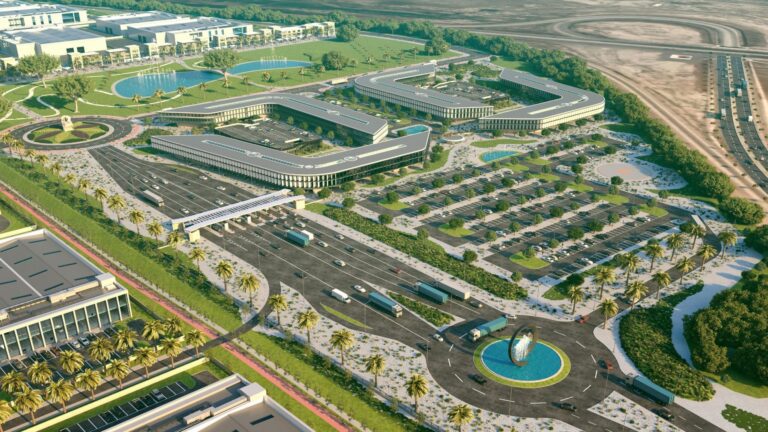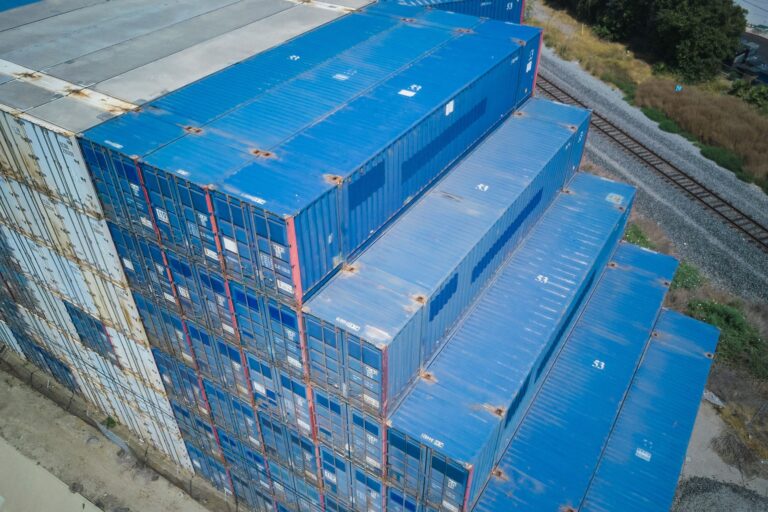Optimization of warehouse management using IoT sensors
In the age of digital transformation, warehouse management faces increasing challenges and opportunities. Warehouses are key elements in the supply chain and their effective management can have a significant effect on the successful operation of businesses. Management processes are complicated by market dynamics, changing consumer preferences and global pressure to optimize resources.
In this context, technological innovations such as the Internet of Things (IoT) represent a valuable tool that can support companies in finding sustainable and efficient solutions. Especially in Rousse, where industry and trade are leading sectors, the introduction of technologies such as IoT sensors in the management of warehouse processes can have a huge potential to increase the competitiveness and profitability of local enterprises.
This material will look in detail at how IoT sensors can be integrated into warehouse logistics, what advantages they offer and how they can be applied in the specific context of Ruse. We hope that the information will serve as a starting point for discussion and action among the business community in the region.
How do IoT sensors work in warehouse logistics?
IoT sensors are smart devices that collect, process and transmit information to a centralized management system or cloud platform. In addition to basic functions such as temperature and humidity monitoring, sensors can also measure other critical parameters such as lighting levels, vibrations, sound or even air quality in warehouses.
Real-time monitoring
With the help of these devices, warehouse operators have the ability to monitor warehouse conditions in real time. This allows a quick response to changing parameters and preventing possible losses or inefficiencies.
Analysis and forecasting
Collected data can be analyzed to identify patterns or trends that can be used to optimize warehouse operations. For example, analysis of historical data can predict when peak periods of activity or the need for additional resources are likely to occur.
Automation and integration
IoT sensors can be integrated with other systems such as warehouse management software (WMS) platforms or automated sorting and handling systems. This creates interaction between the same components of the warehouse operation, resulting in greater efficiency and accuracy.
Local and global opportunities
In the context of Rousse, with its strong focus on industrial production and logistics, IoT technologies offer significant opportunities to modernize and optimize warehouse processes. This will not only increase the competitiveness of local enterprises, but can also serve as an example for other regions and industries.
By implementing these technologies, enterprises have the opportunity to quickly adapt to changing market conditions, increase productivity and optimize the use of resources.
Advantages
The introduction of IoT technologies in warehouse management brings with it a range of benefits that may not be obvious at first glance. Improved accuracy, efficiency and cost-effectiveness are just a few. Here are details on each of these key areas:
- Inventory accuracy: Automation and precise monitoring through sensors dramatically reduce the likelihood of human error when counting, labeling and sorting goods. This not only ensures the accuracy of inventory data, but also facilitates batch tracking and unique product identification.
- Workforce efficiency: Sensors free staff from routine and monotonous tasks, such as monitoring temperature conditions or checking the availability of certain items. This allows employees to focus on more complex and intellectual tasks, such as supply chain management, customer service or strategic planning.
- Cost savings: The optimal use of warehouse space, enabled by the detailed information collected by IoT sensors, leads to a significant reduction in operating costs. For example, skillful positioning of goods according to the frequency of their movement can reduce the time and energy required for transportation and delivery.
- Sustainability and environmental responsibility: In addition, IoT technologies can also help in efforts towards a more sustainable and environmentally responsible business. The data collected can be used to optimize the warehouse's energy efficiency, reduce waste and reduce recycling.
- Improved customer satisfaction: Accurate inventory and efficient logistics not only optimize internal processes, but also lead to faster and more reliable delivery to customers, which immediately increases their satisfaction and loyalty.
With the increasing dependence on logistics and supply chain management, especially in the industrial region of Rousse, the implementation of IoT technologies offers concrete and measurable advantages that can significantly improve business efficiency and profitability.
Application in the industries of Ruse
In Ruse, which is one of the key industrial and commercial centers in Bulgaria, the implementation of IoT technologies in warehouses offers diverse and valuable opportunities. Let's look at some specific examples:
Chemical industry
In the chemical industry, sensors play a critical role in monitoring hazardous conditions, such as excessive temperature or humidity. These parameters are of fundamental importance for the storage and transportation of chemical products. Sensors can automatically signal to a centralized system in case of deviations, allowing rapid intervention and accident prevention.
Production of machinery and equipment
In this sector, IoT sensors can monitor the wear and tear of parts and materials, ensuring longer equipment life and reduced downtime. This leads to greater productivity and efficiency of the workforce.
Food industry
In the food industry, temperature and humidity control is critical to product quality. IoT sensors can monitor these parameters in real time, ensuring storage and transport in optimal conditions.
Logistics services
IoT technologies can optimize the tracking and delivery of goods, shortening the time between production and delivery to the customer, which is key in the dynamic environment of commerce.
Thus, IoT technologies offer specific solutions that meet the specific needs of various industries in Ruse, improving not only the efficiency, but also the safety and sustainability of business operations.
Conclusion
The implementation of IoT technologies in warehouse logistics represents an opportunity for the transformation of business processes not only on a global, but also on a regional level. Ruse, as one of the leading industrial and commercial centers in Bulgaria, can greatly benefit from these innovations. In this context, the Rousse Chamber of Commerce and Industry plays a key role in supporting local enterprises to adapt to these innovations.
As a project partner BE-Digital, The Rousse Chamber of Commerce and Industry is actively engaged in the development and integration of digital technologies in the industrial and commercial sector. This informational material has been developed to point the way to optimization and modernization through the application of IoT sensors in warehouse management. This not only increases efficiency and reduces costs, but also creates a safer and more sustainable working environment.
Through the cooperation of all participants in the project and the active role of the Rousse Chamber of Commerce and Industry, we can offer practical solutions that meet the current and future challenges in business. This creates conditions for sustainable growth and competitiveness of the regional economy.






